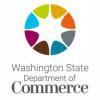The gap between people with effective access to digital and information technology, and those with very limited or no access at all.
Digital Divide

ACA Connects Urges NTIA to Promote Competition with Market-Driven Standards in BEAD
On May 30, ACA Connects President and CEO Grant Spellmeyer wrote to Assistant Secretary of Commerce for Communications and Information Alan Davidson to urge the National Telecommunications and Information Administration (NTIA) to make sure small and medium-sized wireline broadband providers have a fair opportunity to compete in the Broadband Equity, Access, and Deployment program (BEAD).
Expand affordable municipal broadband in Upstate New York
Access to affordable, reliable broadband may have once been viewed as a luxury, but there is no question that it has now become an integral part of our daily lives. Similar to how we view electricity and other utilities, internet access is essential in the 21st-century—critical for everything from remote work and job searching, to education and socializing.
NTCA's Shirley Bloomfield on the challenges posed by BEAD
In the world of rural broadband, all eyes are on the $42.5 billion Broadband Equity Access and Deployment (BEAD) program as individual states continue to assemble their plans. NTCA—The Rural Broadband Association CEO Shirley Bloomfield believes that BEAD has interesting potential for her members, while acknowledging that there are some wrinkles that need to be ironed out.

ACP Transparency Data Collection
The Federal Communications Commission's Office of Economics and Analytics released data related to the price, subscription rates, and plan characteristics of the internet service offerings of participating providers in the Affordable Connectivity Program (ACP), as required by the Infrastructure Investment and Jobs Act. These data were collected through the ACP Transparency Data Collection and are available for download on the FCC’s website at https://www.fcc.gov/affordable-connectivity-program.

Washington State Digital Equity Dashboard helps highlight digital divide
The Washington State Broadband Office (WSBO) has launched a Digital Equity Dashboard to help everyone understand the digital divide—the gap between those with access to technology, digital literacy skills, and the internet and those without. The dashboard uses data from different sources to help illustrate the impact of the digital divide in Washington. Access, affordability, and digital literacy are crucial elements everyone needs to participate in the economy and daily life today.
Broadband progress is measured by results, not good intentions
The late Congressman John Lewis once prophetically noted that “access to the Internet is the civil rights issue of the 21st century.” In the long struggle to recognize Lewis’ vision and close America’s digital divide, civil rights advocates have repeatedly reminded policymakers of one central truth: progress is measured by results, not good intentions. In 2015, for example, the Federal Communications Commission modernized Lifeline—a decades-old program that had long helped low-income households obtain phone service—to apply to internet service as well. But restrictions blocked customers of

Celebrating AANHPI Heritage Month: A Q+A with Angela Thi Bennett
In May the National Telecommunications and Information Administration (NTIA) celebrated Asian American, Native Hawaiian, and Pacific Islander (AANHPI) Heritage Month with the theme “Bridging Histories, Shaping Our Future.” We close out this month by chatting with Angela Thi Bennett, NTIA’s first-ever Director of Digital Equity. "NTIA's work is crucial in addressing the digital divide, which disproportionately affects certain populations, including Asian American, Native Hawaiian, and Pacific Islander communities.

Office of Minority Broadband Initiatives FY2023 Annual Report
Through the Office of Minority Broadband Initiatives (OMBI), National Telecommunications and Information Administration (NTIA) directly addresses the lack of high-speed Internet access, connectivity, adoption, and equity at our nation’s Historically Black Colleges and Universities (HBCUs), Tribal Colleges and Universities (TCUs), and Minority Serving Institutions (MSIs). OMBI works through these anchor institutions to impact their surrounding anchor communities.
President Biden Wants to Send Billions to Rural America, but This Must Happen First
President Joe Biden regularly emphasizes how the major pieces of legislation he has signed — the Infrastructure Investment and Jobs Act, the CHIPS and Science Act and the Inflation Reduction Act — expand opportunities for Americans. This is especially true for rural Americans. Those three laws appropriated billions of dollars — about $464 billion — for many projects that could be particularly relevant to rural communities, allowing them to dream of a different economic future.
New National Broadband Map Update v4, Data as of December 2023
The Federal Communications Commission recently released the 4th version of the National Broadband Map, with data as of December 2023. At a high level, the trend continues of fewer and fewer unserved and underserved locations: in the previous version, 10.1 million locations were unserved or unserved. Now, with six months more data, we’re down to 8.8 million locations needing better broadband service.

